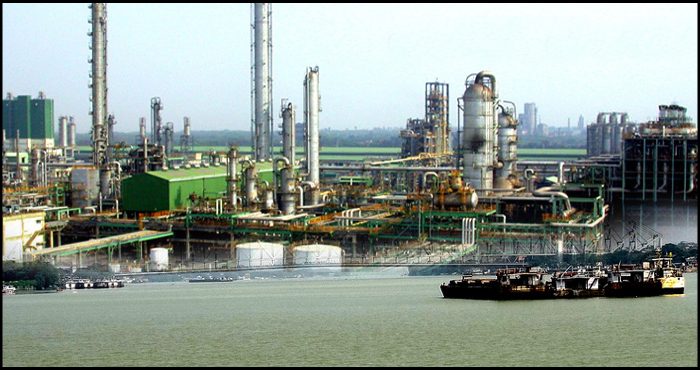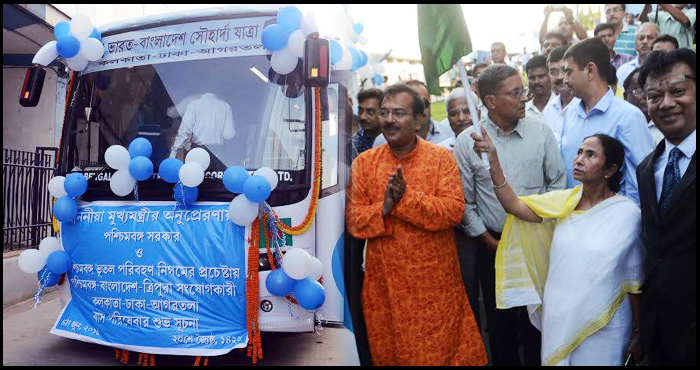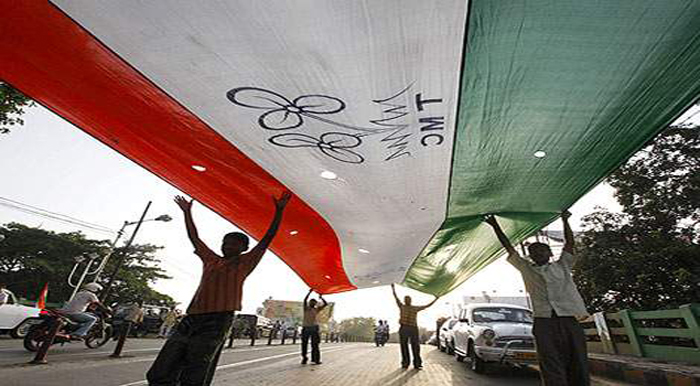Trinamool Congress parliamentary party leader in the Rajya Sabha and the party’s chief national spokesperson, Derek O’Brien, speaks to Business Standard. Edited excerpts:
BS: Analysts say that the Trinamool Congress’ (TMC) overwhelming victory in the Bengal civic polls has been like a semi- final before the 2016 Assembly polls.
Derek: Politics is not about semi-finals and finals. Winning elections is a test of your track record. Since 2011, there has been a lot of development in Bengal. We inherited a state; which if it was put up for auction, would have found no buyers – a debt-stressed state, culturally in a shambles, the morale was low and many ‘man-days’ lost. The last change that happened in the state was way back in 1977.
Without sounding arrogant, the civic poll results that you see, we knew we had done very well. A perception was being created in a certain section of the media that no work was being done. But we know the changes that have taken place in the last few years. The change happened in Junglemahal, both peace and development have come to the area. In north Bengal, Mamata di has made 44 visits to the district administration. Work has happened.
Whether it is the Kolkata Municipal Corporation, or the 75 municipalities that we won or the panchayat elections some time back, it is good governance that has worked in the rural and urban areas. Also, the “gas balloon”, the hype that the Bharatiya Janata Party (BJP) had created, has burst. Even in the May 2014 polls, we won 34 of the 42 seats and then went on to win the by-polls with bigger margins. For the next 20 years, at least, I see Mamata Banerjee as the chief minister of Bengal.
BS: The Narendra Modi government has completed one year in office. How would you assess its performance?
Derek: For all the negatives about the National Democratic Alliance government, they made a smart move. They made the information & broadcasting minister the finance minister and vice versa. So, his (Modi’s) focus has moved from FM (fiscal management) to HM (headline management). Only headlines are being managed. The Swachh Bharat Abhiyan, for instance, has an advertising campaign of Rs 250 crore, but my state West Bengal’s Nadia district won a United Nations award for the best sanitation project; we had set up 350,000 toilets.
The best assessment for the Modi government would be the BJP’s performance in the state Assembly elections after May 2014. They’ve been given a gift of low oil prices but they’re floundering both on the social welfare and social fabric front. Their slogan is cooperative federalism, but it is of no use unless it becomes operative federalism. On one or two issues, such as the Goods and Services Tax (GST), they addressed the concerns of West Bengal, and again on the land boundary agreement. But there has been no improvement in the devolution to states. The Backward Region Grants Fund has been done away with. Even the railways has asked states to complete pending projects through special purpose vehicles. What happens to debt-stressed states such as Bengal?
BS: From May 2014 to May 2015, the TMC’s relationship with the BJP appears to have taken a complete about-turn.
Derek: There is a distinction between politics and governance. We are opposed to the BJP’s communal agenda; ideologically and politically, we’ll fight them. But when the prime minister met the chief minister of our state today, they discussed development for the state. It was not the BJP’s seniormost leader meeting the TMC supremo. There is no change in our stance. We have been consistent in our policies.
BS: Mamata Banerjee did not even attend Modi’s swearing-in ceremony last year. And now, the TMC is backing the government, whether it is the coal Bill, the mining Bill or the GST.
Derek: We are not here to help the government. We are here to help India and Bengal get ahead. For us, it’s ‘ball by ball, Bill by Bill’. Overall, we have been consistent in our policies. On GST, it was in our manifesto in 2009, 2011 and 2014. During the last one year, we have put across our concerns to the government on petrol, tobacco, alcohol, on the central sales tax and so on. We need to protect the rights of the states and we made it clear (to the government) that if you address these issues, we will go with you on GST. On the mining Bill again, we raised three points, on tribal rights and environment, they brought it in; the government moved amendments. On policy issues, we are not closed to negotiations.
See, when Mamata di does not meet the prime minister, it is said that she’s acting difficult. When she does meet him, it is perceived to be the opposite. It is damned if you do and damned if you don’t.
BS: Critics attribute the perceived change to the TMC being on the back foot over the Saradha scam issue.
Derek: The TMC is not on the back foot, it is a transparent party. The TMC is a poor party. Chit-funds in Bengal are an evil right from the days of the Left Front rule. This so-called Saradha taint has been addressed. Eventually, the judge and the ultimate critics are the people. This charge of corruption on Mamata di doesn’t stick.
BS: Since you said that the TMC is not a closed party and is open-minded, is there room for manoeuvring on the land acquisition Bill?
Derek: In three words, no, no, no. There is this whole history of Singur, Nandigram, Tapasi Malik and Mamata di’s 26-day hunger strike in 2006. Right up to 2013, when people laughed at us, when the Congress and the BJP got together to pass the land Bill, we opposed it. We asked for a division and got only 12 votes. But Mamata di had so rightly said that it must be put on record, it’s a bad Bill. They don’t know what they are doing because they don’t understand the complex issue of land.
BS: In Bengal, the minority population being a considerable 27 per cent, their vote was considered to be significant to the TMC.
Derek: It is not that the minority vote matters, peoples’ vote matters. Whether it is the scheduled caste, scheduled tribe, minority areas or Hindu majority, we’ve won across the state because the development that has taken place is all-over. We won 80 per cent of the seats in Bengal and 80 per cent of the seats in urban Kolkata. It is only “unnayan,” that is, development that matters.
BS: Who would you say is your principal adversary in Bengal in the run-up to the Assembly polls next year?
Derek: We have no adversaries, we have political opponents. We have fought a four-way contest with the Left, the BJP and the Congress, and won 80 per cent of the seats and 50 per cent of the votes. The BJP, despite all its hype, is no serious political competition. In 92 municipalities, the BJP got a big zero. The Communist Party of India (Marxist) came a distant second. The Congress, which many feel is on a ventilator, got five municipalities.
BS: Is there any possibility of early Assembly polls in 2016?
Derek: As of now, our government has been elected for a five-year term till May 2016. Anything else is media speculation.
The interview was originally published in Business Standard on May 9, 2015






